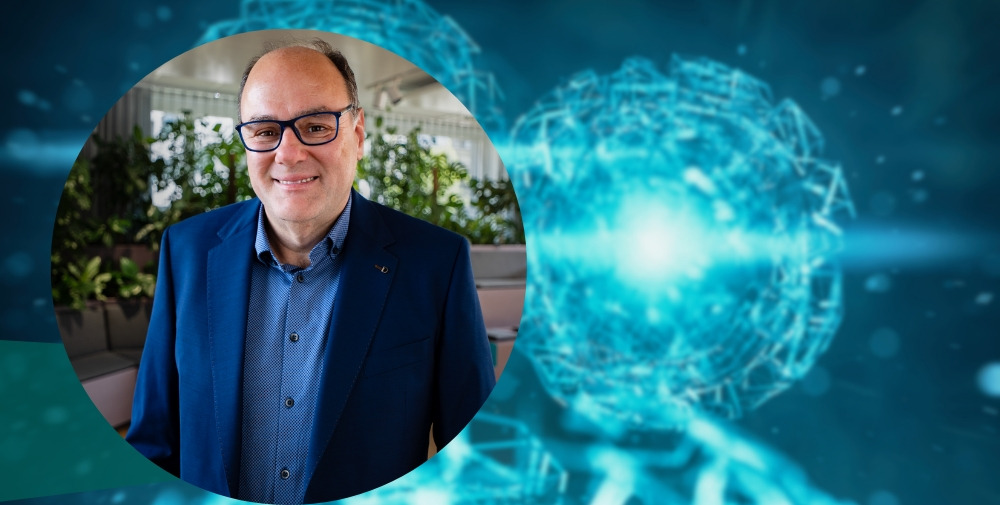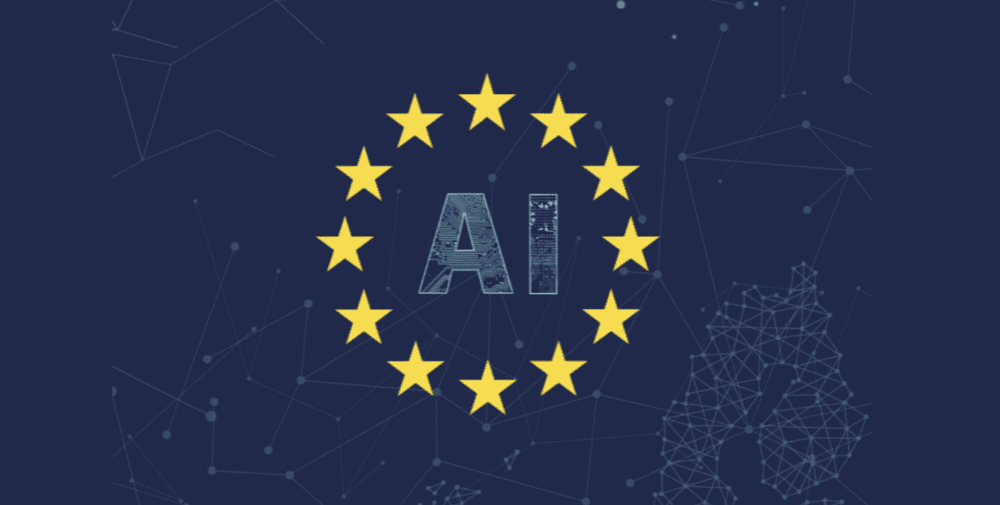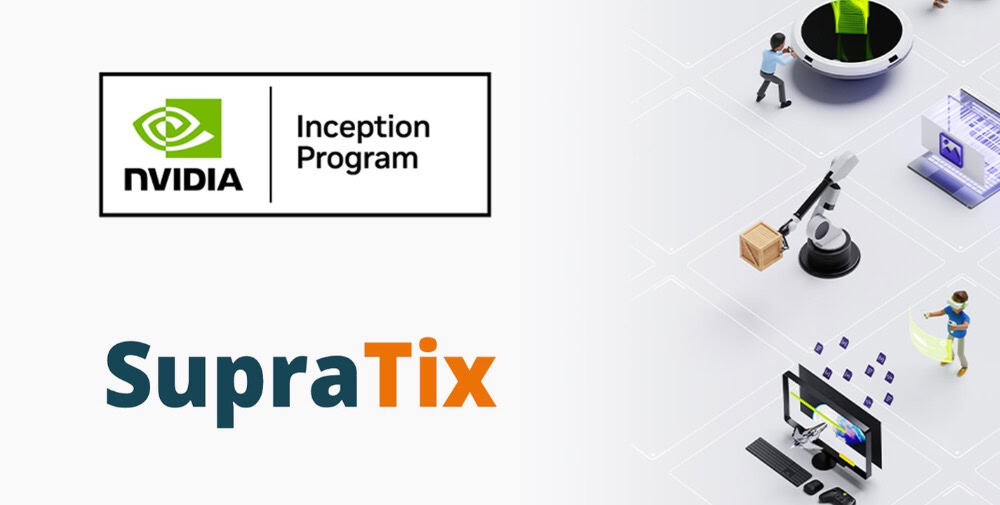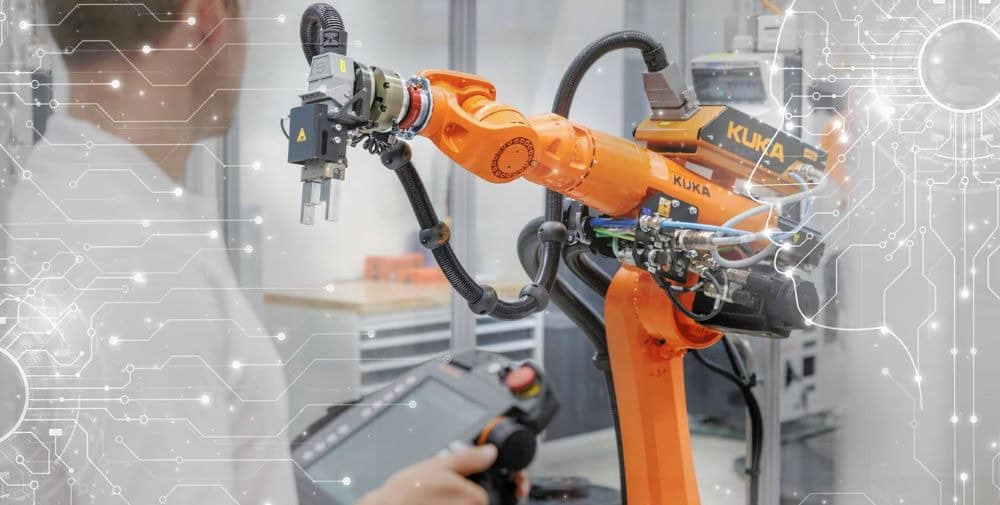Will the integration of artificial intelligence (AI) revolutionize smart systems once again, and if so, how and why?
Stefan Finkbeiner: AI not only provides new applications, but also enables personalization. It can simplify the design of customized products, shorten development time and reduce total cost of ownership.
For example, one of our sensors is suitable for indicating spoiled food but equally for early detection of forest fires and other use cases. Thanks to the sensor’s AI capabilities and corresponding software tools, customers can effortlessly develop custom-fit solutions for their specific use cases within a short period of time.
What role will quantum sensors play for smart systems in the future?
Stefan Finkbeiner: Quantum technology is pushing the boundaries of what is possible both in the field of data processing and in the field of sensors. Bosch has therefore been conducting intensive research in the field of quantum sensor technology for years.
There is a shortage of skilled workers everywhere – what is the situation like in your industry?
Stefan Finkbeiner: We are continuously expanding our portfolio. This can only be realized with the appropriate skilled workers and experts, and it is definitely a challenge to find sufficient skilled workers. It is therefore urgently necessary that, together with the universities, we can once again inspire more students to take up appropriate courses of study.
I see an urgent need for action here.
Do smart systems even pose a threat to jobs? Keyword automation…
Stefan Finkbeiner: We can’t see that happening in our business. On the contrary: In recent years, we have significantly expanded our expertise in the field of AI – with AI experts from all over the world. AI doesn’t have to replace a worker; rather, when used sensibly, it can make monotonous tasks easier. In this way, the workplace does not disappear, but the work itself changes.
We are all concerned about sustainability. What contribution do smart systems make here?
Stefan Finkbeiner: We are convinced that sustainable, ecologically and socially responsible action is the basis for our economic success. This attitude shapes the entire Group and is reflected in our actions but also in our products.
Our sensors can help reduce CO2 emissions: One example is our Digital Nose with AI.
Just 3 x 3 millimeters in size, the “sniffer nose” of the forest fire detector. The Bosch environmental sensor built into the system is the world’s first gas sensor with artificial intelligence and the first to be used for early detection of forest fires. It is constantly learning and improving: data from all installed sensors is collected to continuously train the environmental sensors using artificial intelligence and improve their accuracy in detecting and analyzing gases. Software has been developed specifically for this purpose. If the sensor detects a fire, it immediately sounds the alarm, sends a signal to the cloud and thus notifies the emergency services.
Cross your heart: Are smart systems really secure these days? What needs to be done to ensure that we can trust them in all areas of application?
Stefan Finkbeiner: Security is an important topic that we take very seriously. Currently, our sensors communicate with our customers’ application processor and have no direct data connection “to the outside”. Our smart sensors allow local processing of data, local functions and plausibilization of sensor signals, which help support data security.
When AI runs on the sensor itself (Edge AI), no connection to a cloud or smartphone is required. Data remains private, and activities can be continuously tracked and analyzed entirely without an Internet connection. Edge AI also minimizes latency and power consumption, so users get fast, real-time feedback and need to charge their devices less often.
How do you look at the current state of the industry in Europe? What makes us strong and in which areas do we need to act urgently in order not to lose ground?
Stefan Finkbeiner: Europe is strong in the development and production of complex system solutions. Examples of this are the automotive industry, automation, medical technology and also microsystems technology.
In microsystems technology, I can speak for this, we have the world’s leading companies here in Europe.
But microsystems are integrating more and more functions and competencies in hardware and software. Here, it is important to train the appropriate specialists and system experts who will drive the further development and integration of additional functions and further expand our market leadership.
Local production of core components in Europe is also essential for market leadership in microsystems technology: keeping development and production together locally enables rapid developments and innovations. To ensure this, Bosch has expanded its manufacturing capacity in MEMS and semiconductors in recent years and will continue to do so.
In total, Bosch has already invested more than 2.5 billion euros in its semiconductor manufacturing facilities in Reutlingen and Dresden since the introduction of 200-millimeter technology in 2010. Added to this are further investments worth billions for the development of microelectronics. In the summer of 2022, Bosch announced that it would invest a further three billion euros in its semiconductor business in Europe by 2026 as part of its investment plan and with the help of the European funding program IPCEI Microelectronics and Communication Technologies (“Important Project of Common European Interest on Microelectronics and Communication Technologies”).
What role do networks play and in which areas do networks like EPoSS develop their greatest potential?
Stefan Finkbeiner: Networks are the nucleus of any cooperation and EPoSS in particular, as an association that has closely linked our smart systems community in Europe since 2006, is such a nucleus. EPoSS is the mouthpiece that we as industry – but also our members from the European research institutions – have in order to make ourselves heard in Brussels. Through EPoSS, we can play a key role in shaping the European Roadmap for Electronic Systems Developments (ECS SRIA) for the next 10-15 years and initiate joint pre-competitive European development projects. EPoSS represents us, the Smart Systems players, currently in the KDT JU, which will soon become the Chips JU, and has an immensely important message to deliver: Europe needs chip production, but not only this! Our topics on system integration and AI must also be developed further and the application topics are important in order not to lose ground internationally.
As Chairman of EPoSS, I have worked hard to ensure that we also play a role in shaping the Chips4EU initiative. EPoSS is the network in Europe that stands up for our community, and we work very well and gladly with the regional networks such as Silicon Saxony, microTEC Südwest or IVAM, to name just a few. I have enjoyed being the head of this network of “smart people for smart systems” for many years.
Which smart systems do you use in your everyday life? What could you no longer do without and what will you never use?
Stefan Finkbeiner: Smart systems for navigation in the car, smartphone are indispensable for me. I also regularly use fitness functions integrated into a smartwatch. I use smart systems in headphones every day at work and in my private life. At home, I monitor air quality with smart systems (not always to the delight of my family). As a technology-savvy physicist, I don’t want to rule anything out: as soon as there are data glasses suitable for everyday use, I will use them as well.
_ _ _ _ _
Our interview partner
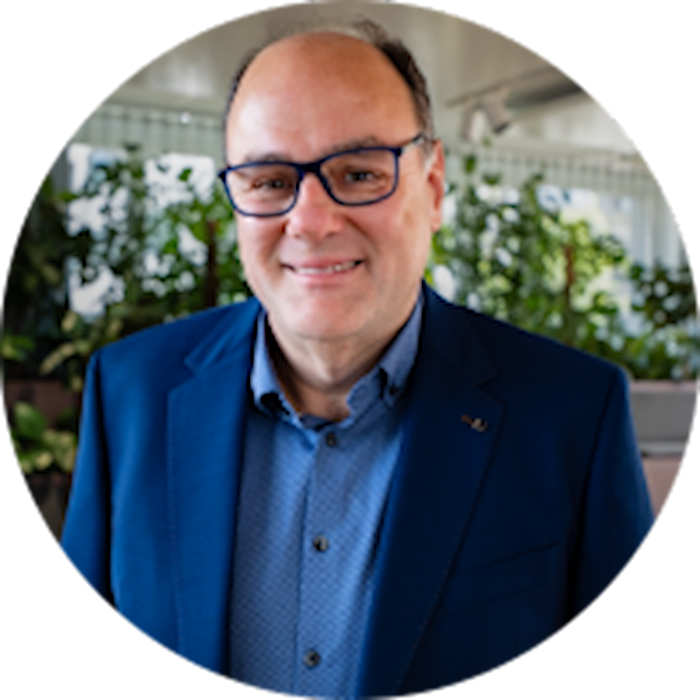
Stefan Finkbeiner
CEO, Bosch Sensortec GmbH & Chairman EPoSS e. V.
_ _ _ _ _
Further links
👉 Bosch Sensortec website
👉 EPoSS website
